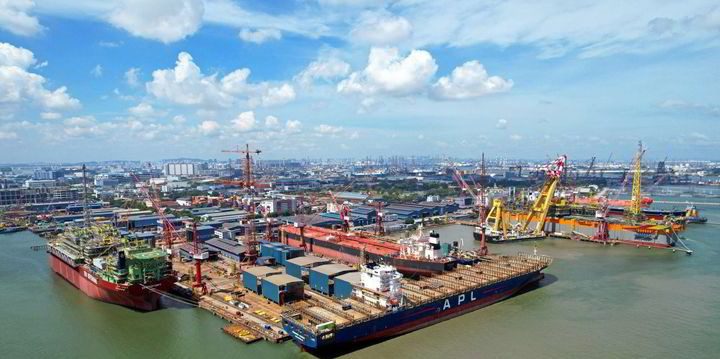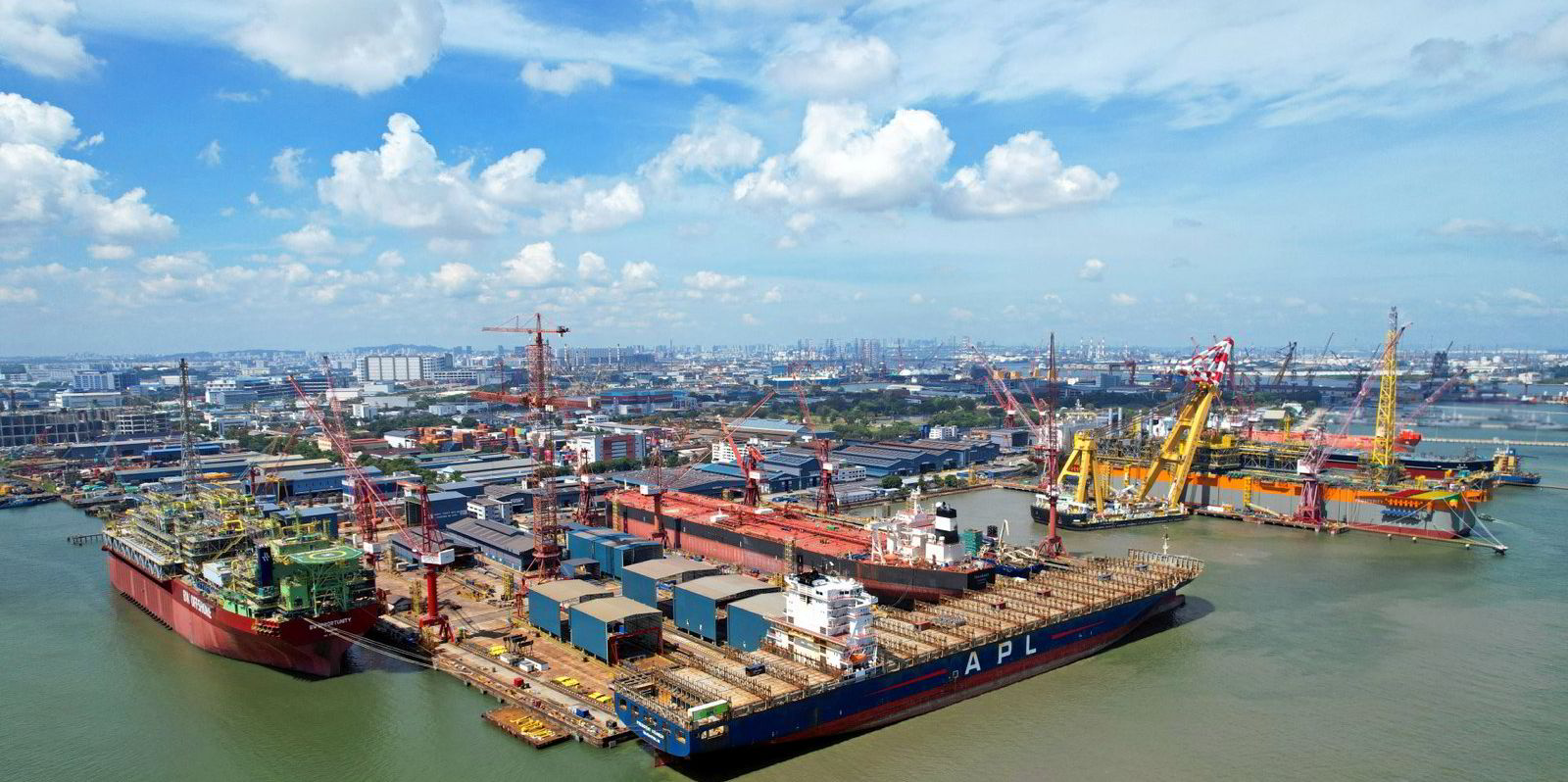Singapore’s Public Prosecutor (PP) could yet charge the six former Keppel Offshore & Marine senior managers embroiled in Brazil’s Operation Car Wash corruption scandal if new evidence becomes available.
Minister in the Prime Minister’s Office, Indranee Rajah, defended in parliament the PP’s decision to issue stern warnings to the six former managers embroiled in the scandal that saw bribes totalling US$55 million paid via an intermediary to secure rig-building contracts from Brazilian national oil company Petrobras.
The warnings were issued in lieu of prosecution, following an investigation by Singapore’s Corrupt Practices Investigation Bureau (CPIB).
Singapore’s ruling People’s Action Party (PAP) last week effectively shut the door on any further local investigation, naming of names or divulging of more facts related to the scandal involving the six former managers.
However, Rajah said that if subsequently new and compelling facts come to light, it remains open for the PP to re-evaluate its decision “in the light of the evolving legal and factual matrix”.
Rajah admitted there has been a fair bit of speculation as to why the CPIB did not issue a fuller statement or why the government is dealing with the matter in parliament — which, she said, is based on a lack of understanding of how these matters are usually dealt with.
Article continues below the advert
In response to parliamentary questions tabled by the minority opposition Workers’ Party arising from the PP’s decision not to prosecute, Rajah cited the CPIB as saying that the “case is complex and transnational, involving multiple authorities and witnesses from several countries”.
“There are evidentiary difficulties in cases of such nature. Many of the documents are located in different jurisdictions. In addition, key witnesses are located outside of Singapore and cannot be compelled to give evidence here,” she said.
“The decision whether to prosecute the six individuals for criminal offences has to take into consideration all relevant factors, such as the culpability of each individual, the available evidence and what is appropriate in the circumstances. Having taken these into consideration, stern warnings were issued to the six individuals.
“Police and other law enforcement agencies investigate a vast number of cases. When they do not proceed, the standard practice is not to issue any statement,” she added.
Rajah noted that while the plea bargain agreement entered into between Keppel O&M and the US Department of Justice relating to the bribes for rig-building contracts scandal makes references to the actions of certain individuals.
However, she said that she has been advised that those references, on their own, are insufficient to establish any offences beyond reasonable doubt without witnesses testifying in Singapore about the context surrounding those actions and the intention behind them.
“In short, the agencies do not have sufficient evidence that would show beyond reasonable doubt, that any of the six individuals were guilty of an offence,” said Rajah.
In-depth investigation
The CPIB conducted an in-depth investigation within Singapore, within the scope of its legal powers. However, the minister stressed that the difficulty with this case is that several potential key witnesses are not in Singapore, and the bureau has not been able to secure their cooperation or agreement to testify in the city state.
With the initial assistance of the Brazilian authorities, the CPIB made two fact-finding trips to Brazil in May and August 2019.
Singapore’s Attorney General Chambers and the bureau sent three mutual legal assistance requests to Brazil to secure evidence that was needed, and the agencies also sent an MLA request to another relevant foreign authority to interview other potential material witnesses.
“The contents and outcome of these MLA requests are confidential, but I can inform the House that they have either not yielded evidence that could be used to secure a conviction before our Courts, or the responses have not been helpful in advancing the case,” commented Rajah.
She revealed there is one foreign witness who gave evidence in other proceedings, which could have been relevant in establishing the offences in Singapore. However, that foreign witness is not willing to voluntarily give evidence in Singapore and neither the AGC nor CPIB can compel him to do so.
“Some members may ask whether any prosecution could be advanced arising out of the fact that a particular individual had entered into a plea bargain in another jurisdiction, in relation to his involvement in the Keppel O&M bribery,” added Rajah.
“[However], when this individual was investigated by [the] CPIB on his return to Singapore, he denied knowing that commissions paid to the agent in Brazil were paid out as bribes. He did not, during CPIB’s investigations, implicate himself or any others in conspiring to pay bribes.”
The minister stressed that the CPIB has conducted as thorough an investigation as it could with the information and powers that it possessed. However, given the cross-border nature of this case and absence of key witnesses, the bureau’s investigations could not overcome the evidential difficulties for the purposes of prosecution in a Singapore court.
Not publicly named
Asked as to why the CPIB did not disclose the names of those Keppel O&M ex-officials implicated in the Operation Car Wash scandal, the minister said that the bureau’s policy is not to name individuals unless they are charged in court.
“This policy is not unique to the CPIB; law enforcement agencies in the US, UK and New Zealand have a similar approach. The principle underlying this policy is to avoid prejudicing that individual’s right to due process and also avoid any presumption of guilt in the absence of any formal findings,” said Rajah.
Keppel O&M earlier told Upstream that it would not be commenting on the matter.

